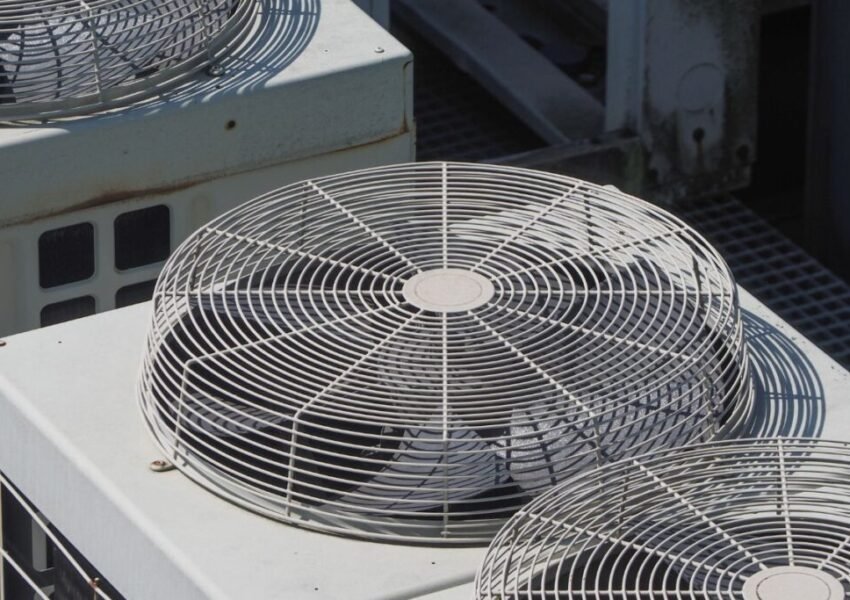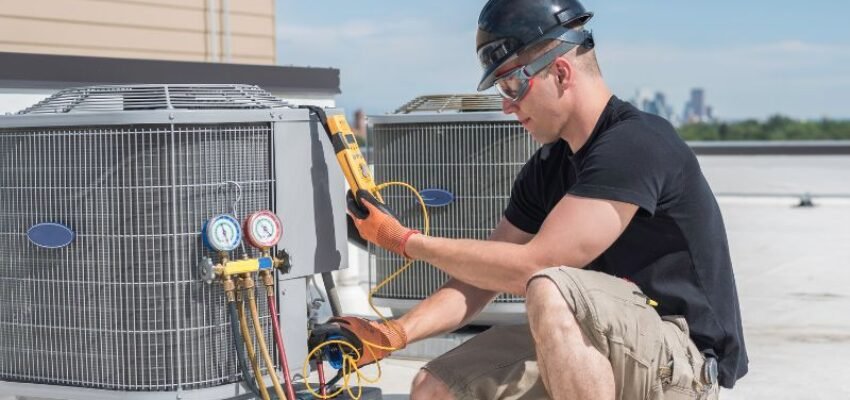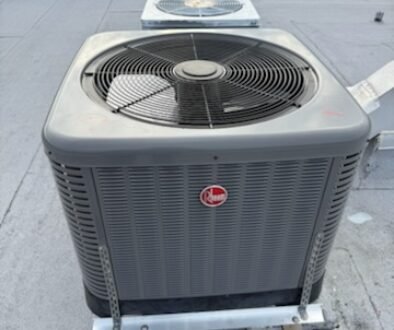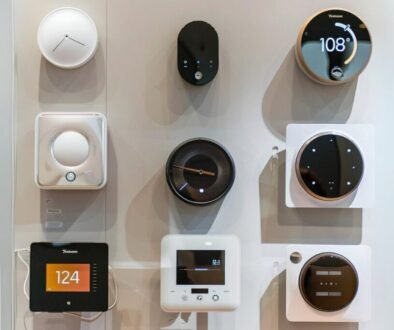Split System vs. Package Unit: Which HVAC System is Better?

Published December 14, 2023
When choosing the right HVAC system, it can be overwhelming to navigate the various options available. Two popular choices are split systems and package units.
In this article, we will explore the differences between these two types of HVAC systems. We want to help you determine which one is better suited for your needs.
What is a Split System?
A split system HVAC consists of two main components: an indoor unit and an outdoor unit. The indoor unit or evaporator coil is responsible for absorbing heat from the air inside the building. The outdoor unit called the condenser, expels the absorbed heat outside. Refrigerant lines and electrical wiring connect these two units.
How Does a Split System Work?
When the cooling mode is activated, the indoor unit extracts warm air from the room, passing through the evaporator coil. The refrigerant within the coil absorbs the heat from the air, transforming it into cool air. The cool air is circulated back into the room through the vents. But, during the heating mode, the process is reversed, and the system works to heat the air instead.
Pros of a Split System
- Energy Efficiency: Split systems are known for their energy efficiency. The ability to control temperatures in different rooms allows for optimized energy usage.
- Quiet Operation: Split systems operate quietly. Thanks to the separation of the loud condenser unit from the indoor unit. This makes them suitable for bedrooms, offices, and other noise-sensitive spaces.
- Flexible Installation: The separate components of a split system allow for flexible installation. The indoor unit can be mounted on walls or ceilings. The outdoor unit can be placed in a convenient location outside the building.
Cons of a Split System
- Cost: Split systems are more expensive upfront than package units. The separate installation and additional components contribute to the higher price.
- Space Requirements: Instilling a split system requires adequate wall or ceiling space for the indoor unit. This may limit the placement options in certain buildings or rooms.
- Complex Installation: Split systems require professional installation due to their complex nature. This adds to the overall cost. It may also cause inconvenience during the installation process.
What is a Package Unit HVAC?
As the name suggests, a package unit is a self-contained system with all components housed in a single unit. This includes the compressor, condenser, evaporator, and blower. Package units are installed on rooftops or in dedicated areas outside the building.
How Does a Package Unit Work?
Package units operate similarly to split systems. But all the components are housed in one unit. The air is drawn into the unit, and the cooling or heating occurs. The conditioned air is then distributed through ducts in the building.
Pros of a Package Unit
- Cost-Effective: Package units are generally more affordable than split systems. The consolidated design and more straightforward installation contribute to the lower overall cost.
- Space Saving: Since all components are contained within a single unit, package units take up less space than split systems. This makes them ideal for buildings with limited space availability.
- Easy Maintenance: Package units are easier to maintain, as all components are housed in one unit. This simplifies troubleshooting and repair processes.
Cons of a Package Unit
- Limited Control: Package units offer little control over individual room temperatures, as air is distributed through ducts. This may result in uneven temperature distribution throughout the building.
- Noise: The operation of a package unit may produce more noise than a split system, as all the components are housed in one unit. This can be a concern in noise-sensitive areas.
- Lower Energy Efficiency: Package units are generally less energy-efficient than split systems. The inability to control temperatures in individual rooms may lead to unnecessary energy consumption.

Split System vs. Package Unit: Which HVAC is Better?
If energy efficiency and individual temperature control are essential factors for you, a split system might be the better choice. But, if cost-effectiveness and space-saving are your priorities, a package unit could be the preferred option. It is recommended to consult with HVAC professionals to assess your requirements and determine the most suitable HVAC system for your home or office.
Summing it up
When selecting the right HVAC system, understanding the differences between split systems and package units is crucial. By weighing the pros and cons of each option, you can make an informed decision that aligns with your specific needs and budget. Whether you opt for a split system or a package unit, proper installation, regular maintenance

This Content Is Fact Checked
This content has undergone thorough fact-checking by our team of internal experts. Gain further insight into the editorial standards upheld on our website here.
South Florida HVAC Professionals
Snowflakes Air Conditioning has been providing professional HVAC services for over 10 years. We are committed to keeping your air conditioner running smoothly all year round. Our experienced technicians can handle anything from AC repair to sales and AC installation. Whether it’s time for an upgrade or just regular upkeep, we are a name you can trust for your HVAC needs. Contact us today for more information.

About The Author
Meet writer Rei Bayucca, an HVAC and construction industry enthusiast. Discover insightful articles designed to help you solve your most pressing problems. Rei can captivate you with expertly crafted content that will leave you hungry for more.



